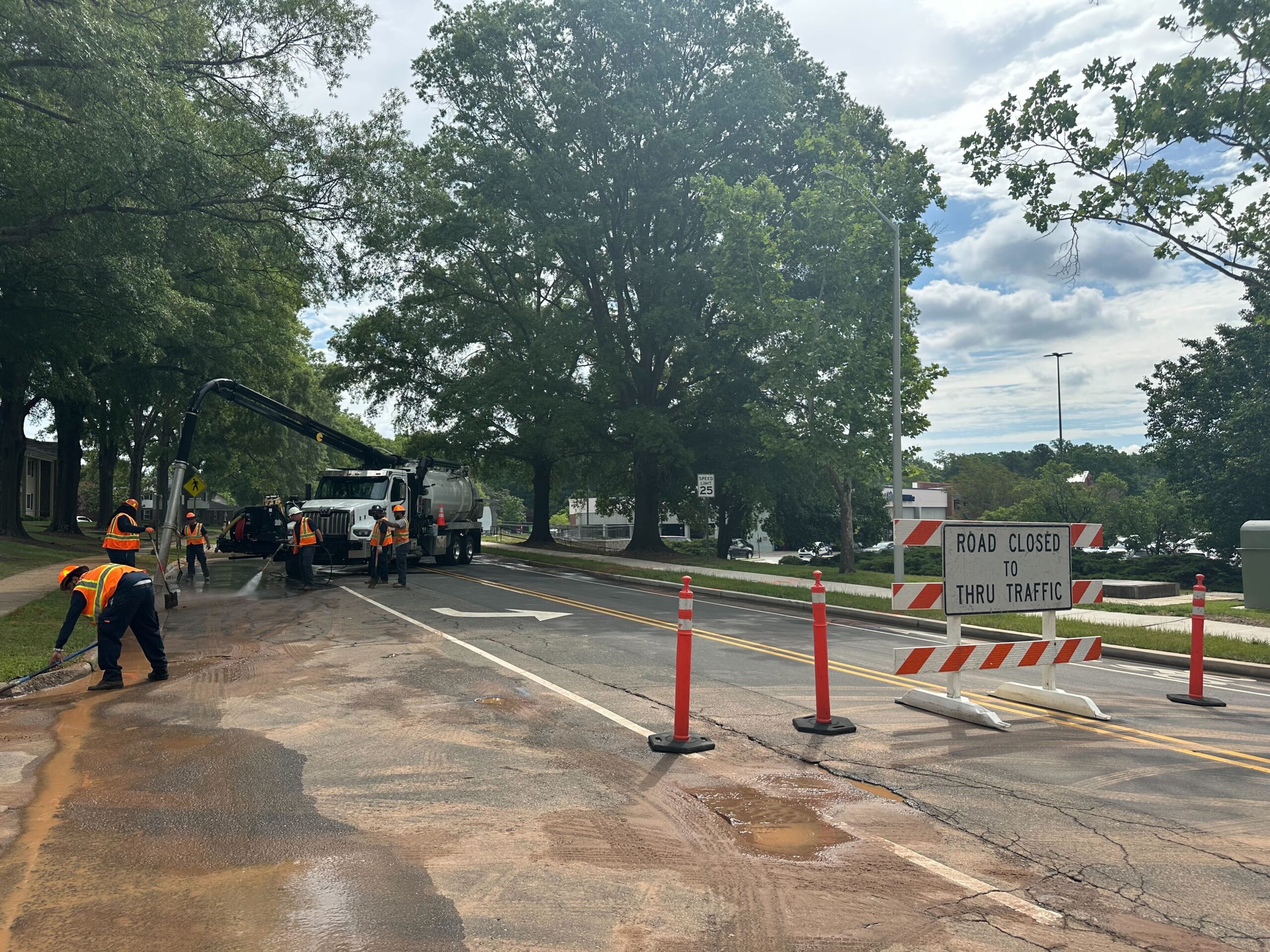Sludge, or biosolids as they’re known in the industry, is what is left over when municipal wastewater is treated and reclaimed. For years OWASA has been recycling biosolids into fertilizer.
The liquid sludge goes through a high-temperature anerobic digestion process at the Mason Farm wastewater treatment plant, then gets sprayed onto 1,000 acres of farmland in Orange, Chatham and Alamance counties.
But this process has come under scrutiny from public health officials, environmental activists and those living near the spray sites.
Now, OWASA officials are investigating the feasibility of drying all biosolids and selling them to McGill Environmental Systems in Chatham County to use as compost.
Administrators say switching to the composting process will minimize nuisances such as odors and noise for residents near the spray sites. They also note drying the biosolids will require less fuel to haul than the liquid, and reduce the chance of a spill during transit or application.
If approved, the switch is estimated to save $100,000 in maintenance and operating costs each year.
The OWASA board will discuss the plan at its January 8 meeting. You can read the full report on biosolid disposal here.







